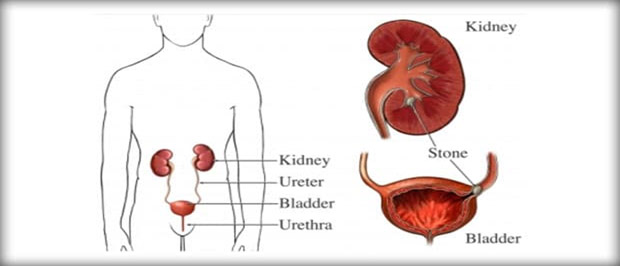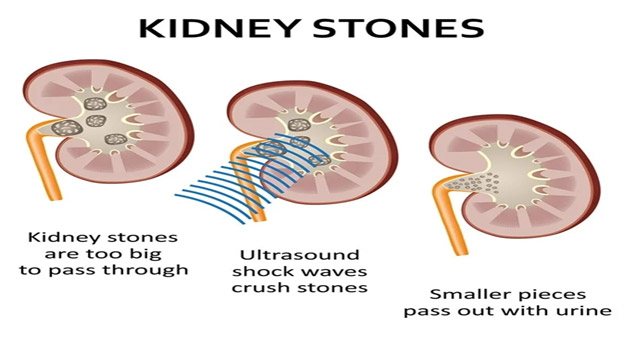Call Us : +91-129-431-0477 | Mail Us : infogoyalhospital@gmail.com
Ureteric Stones
Ureteral or ureteric stones are kidney stones that get stuck in either one or sometimes both ureters and cause problems. Large ureteric stones can obstruct urine flow from the kidney to the bladder. This stoppage can lead to extreme discomfort. Surplus concentrations of salt and minerals in the urine can result in the formation of Kidney stones. These minerals create crystals that develop into stones. Most of the kidney stones are calcium-based and are tiny. Some of them are very undersized that you cannot even see them with bare eyes, travel via the urine, and do not even induce any complications. Bigger stones that get adhered to in the urinary tract can lead to intense discomfort.

Causes And Risk Factors of Ureteric Stones
Since the causes of ureteric stones are anonymous, people with a family history are possibly at more hazard. Some metabolic diseases such as urinary tract infections and cystic kidney diseases are likewise linked with the formation of ureteric stones. People that undergo chronic bowel inflammation can likewise be vulnerable to ureteric stones. Ostomy surgery or intestinal bypass operations can also lead to the outset of the disease. In these instances, restricting foods high in oxalate might be suggested, such as wheat germ, beets, soybean crackers, chocolate, peanuts, sweet potatoes, rhubarb, spinach, black Indian tea, or okra. Instead of these foods, you can consume red raspberries, marmalade, strawberries, liver, celery, grits, and grapes.
Symptoms of Ureteric Stones
Small stones that travel through the urinary tract alone might not induce any symptoms. But, stones that obstruct any of the kidney’s drainage tubes or ureter can generate symptoms such as:
Contact your doctor or health expert immediately if you notice any of these symptoms.
Complications Associated With Ureteric Stone
A ureteric stone linked with blockage and urinary tract infection (UTI) is an actual urologic emergency. Complications associated with ureteric stone are death, perinephric abscess, and urosepsis.
Diagnosis & Treatment of Ureteric Stone
Your doctor will diagnose ureteric stones by:

Some studies reveal that ureteric stones can get healed independently. Nonetheless, the treatment of ureteric stones relies on the location and size of the stones and the substances through which they are made. Treatment can likewise be handled by your present conditions, like obesity, the usage of anticoagulants, and so on. In case you have bigger stones, and your urinary tract is obstructed, a urologist will treat you with:
Prevention of Ureteric Stones
It is not possible to reverse the family history; however, there are still some
preventive measures you can follow to lessen the likelihood of developing stones.